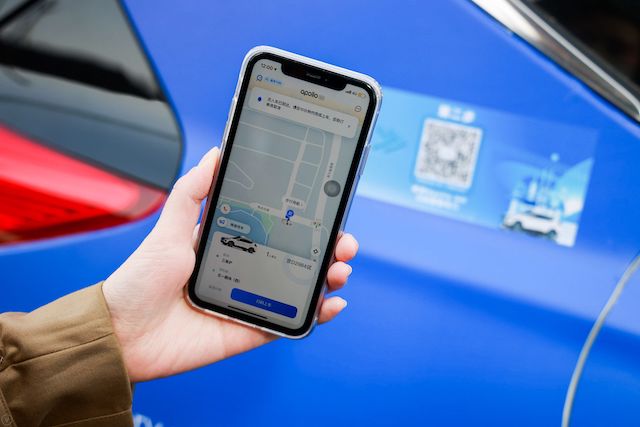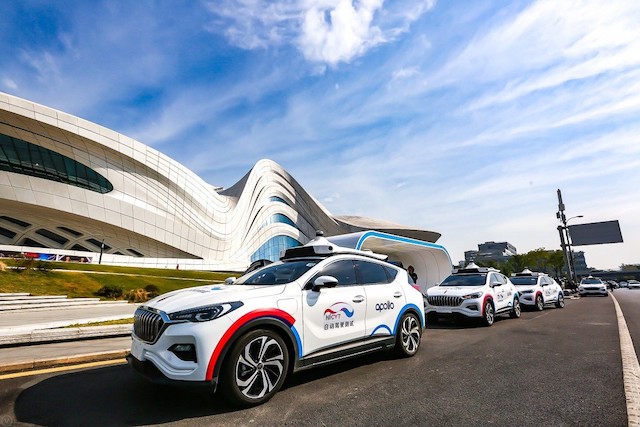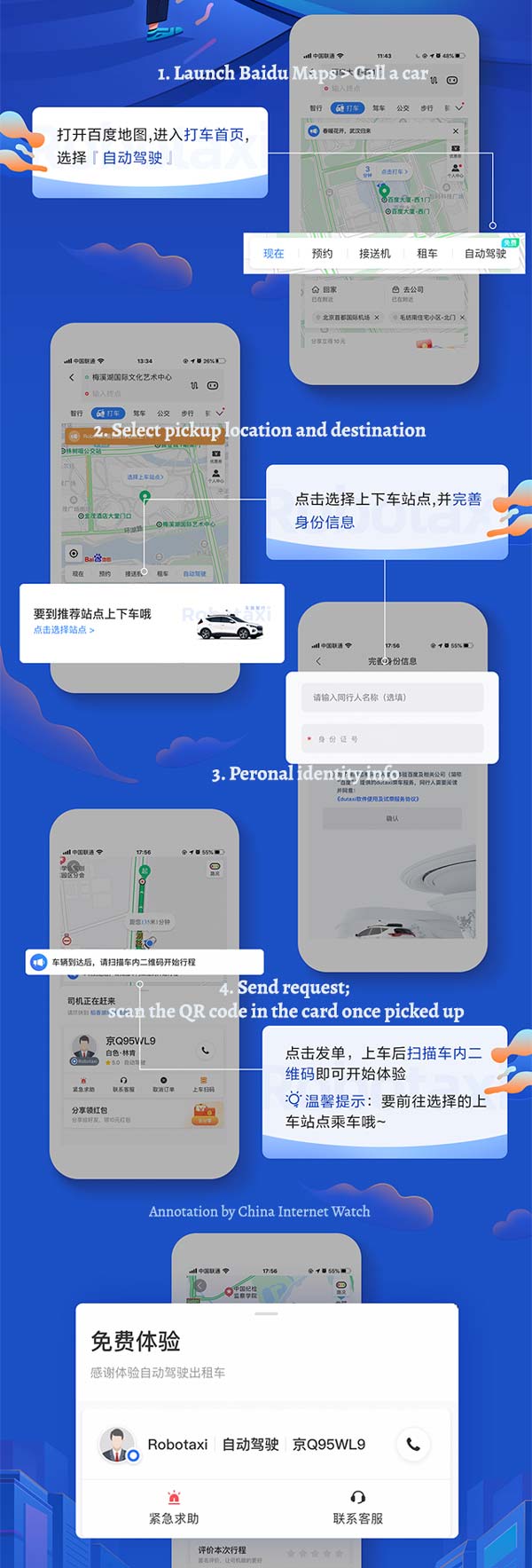Baidu, Inc. will open fully driverless robotaxi services to the public in Beijing starting from May 2, 2021, which will be China’s first paid autonomous vehicle service where users can hail a robotaxi without a safety driver behind the steering wheel, marking a landmark step on the road to commercialization of autonomous driving.

The fully driverless Apollo Go Robotaxi service will first be launched in Beijing’s Shougang Park – one of the venues for the 2022 Beijing Winter Olympics – and will soon be transporting visitors at the games.
With the ride-hailing service being launched during the bustling Labor Day holiday period, Baidu will be the first Chinese company offering a fully driverless robotaxi service under commercial operation.
By using the Apollo Go App, users can locate a robotaxi in the vicinity and hail a driverless ride by themselves through a system of unmanned self-service processes. Features including virtual reality navigation and remote car honking can help users to identify the location of the car.
To unlock the autonomous vehicles, users are required to scan a QR code and health code on the car for identity verification and pandemic prevention purposes.
Upon boarding the vehicle and clicking on the “Start the Journey” button, the system will ensure that seat belts are fastened and the doors are shut, the trip only beginning after all the passenger safety protocol checks are completed.
With no safety driver at the helm, the 5G Remote Driving Service is present at all times to allow human operators to remotely access the vehicles in the case of exceptional emergencies.
At Beijing Shougang Park, the robotaxis will be able to transport users to sports halls, work areas, coffee shops and hotels. During the upcoming Winter Olympics, the Apollo robotaxis will be available to provide shuttle services for athletes and staff.
Since October last year, Baidu has started autonomous driving tests for the public under trial operations in areas such as Yizhuang, Haidian and Shunyi in Beijing.
Baidu Apollo is moving forward to a new stage of scalable commercialized operations with the launch of the fully driverless robotaxi services in the capital, as a starting point of commercialized operations in first-tier Chinese cities.
Baidu Apollo recently announced the completion of over 10 million kilometers of road testing for autonomous driving.
Earlier this week, Guidehouse, a leading global consulting firm, named Baidu as one of the top autonomous driving vendors in the world, with Baidu the only Chinese company listed on the Guidehouse leaderboard.
Baidu has been investing in autonomous driving for eight years and has an established a car fleet of 500 vehicles for autonomous driving trials. Baidu has been granted 2,900 patents for intelligent driving and 221 test drive licenses, among which 179 are to test self-driving cars for carrying passengers.
Baidu launched autonomous driving MaaS platform with five models
Baidu starts offering free robotaxi service in Changsha in April 2020
Baidu has started offering its Apollo “robotaxi” service in Changsha city of Hunan Province, becoming one of the first companies to carry passengers in autonomous vehicles in China.
People in Changsha can hail Baidu’s autonomous taxis for free through Baidu’s navigation app Baidu Maps, according to Baidu’s official press release earlier this week.

Currently, Baidu’s Robotaxi service is limited to specific areas of Changsha city which include residential areas, commercial zones, and industrial complexes. Each taxi has a backup driver in the car to take manual control in case of an emergency.

Baidu launched its open-source Apollo platform three years ago for autonomous vehicles R&D such as high-definition mapping and obstacle perception technology.
At the Apollo Partner Conference in December 2019, Apollo v5.5 was released to support urban road point-to-point autonomous driving, as well as open-platform development for V2X and IoV solutions. Apollo has garnered 177 leading OEMs, suppliers and other partners, and over 36,000 developers worldwide.
Apollo fleet has reached 3 million test kilometers on the road in December 2019, spanning across 23 cities, including Beijing, Wuhan, Cangzhou and Changchun. The municipality of Beijing granted Baidu its first batch of 40 manned autonomous driving licenses in December 2019.
Last week, a self-driving startup AutoX opened a self-driving taxi operations center in Shanghai in preparation for its upcoming robotaxi pilot project in the financial hub. Ride-hailing service provider Didi Chuxing also has a similar plan.
Baidu Maps car-hailing aggregation platform was launched in 2015. At present, it has access Didi, Shouqi, Cao Cao, Dida, Ctrip, and etc. covering the mainstream vehicle services such as taxi, express, special car, airport transfer machine, car rental, etc. Now it has covered more than 400 cities in China.